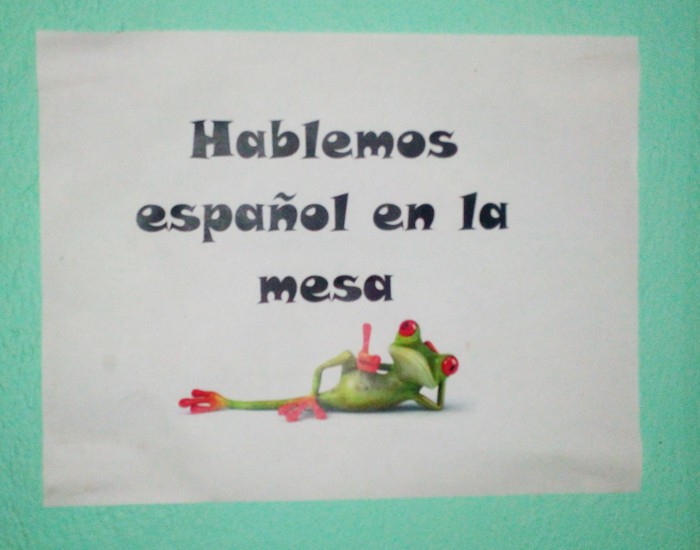Our picturesque country of Costa Rica boasts a diversity of natural wonders, from lush rainforests to stunning beaches. This gives rise to the question – why do foreigners seem to take liberties with the proper nouns that make up our familiar place names?
I recently received an interesting letter from a reader named David. He had two questions. He first wanted to know if I knew of “any reason why many languages seem to think it is proper to change the spelling and the sound of a proper noun.”
He was referring particularly to names of countries and cities. For example, in Spanish, New York is Nueva York, London is Londres, and Germany is Alemania.
Here is the answer I gave him.
Dear David,
First of all, you are intelligent and very logical, but perhaps you put too much faith in logic. The fact is that languages are like most people, sometimes rational, sometimes irrational, and sometimes absolutely crazy. And like people, for the most part, we need to accept them with all their defects. I think you already know that languages don’t really, as you wrote, “seem to think it is proper to change the spelling and the sound of a proper noun.”
What happens, instead, is what a flippant linguist might simply call “usage.” That is, there are a number of reasons why proper nouns may change from language to language. You have only to look at how differently the lands in the United Kingdom came out in Spanish: England, Inglaterra; Scotland, Escocia; and Ireland, Irlanda. These differences suggest that three different circumstances were involved in the evolution of these names.
There are many reasons for changes in proper nouns from one language to another.
Sometimes, they are due to how people of another language hear, pronounce, read or spell the original name. The word “alligator,” for example, comes from the Spanish “el lagarto.” An example of a spelling conversion is the name of the Texan town Waco, from the Spanish word “hueco” (hole). The largest city in the U.S. state of Washington, named after an American Indian chief variously known as Sealth, Seathle, and See-ahth, somehow evolved into “Seattle.”
And I’ll never forget the auto body man who told me that his favorite truck was a “Doad Hey”; it took me awhile to understand that he was talking about a Dodge. The most extreme example of name distortion I know is the name of the well-known English pub Elephant and Castle. It turns out that this probably comes from the Spanish La Infanta de Castilla (the Royal Princess of Castile). So much for people’s perceptions of other tongues!
Sometimes the name differences involve translation, as we see in Inglaterra. For example, the word for “flower” in Italian is fiore, whence the Italian name Firenze. The word is flor in Spanish, whence Florencia, as well as the English Florence. By the same token, the name Clara, meaning “clear” in Spanish, is Chiara in Italian, also meaning “clear.” Finally, Spanish speakers say “Nueva York” and “Nueva Jersey” simply because they are translating “New.”
Sometimes proper names entail misunderstandings. We refer to the “Pennsylvania Dutch,” when, in fact, they originated from Germany. This is because the word “Dutch” (coming from Deutsch) was at one time the word for “German” in English. If anything, the English word for “Dutch” should be a derivative of the word “Holland.”
Then we have all the names for Germany, a can of worms that would take an entire article to explain. Basically, because of Germany’s position in the center of Europe and its long history as a disunited region of distinct tribes and states, it has many names in different languages, perhaps more than any other European nation. For example, in the German language, the country is known as Deutschland, in Spanish it is Alemania, and in Polish it is Niemcy.
The Norwegians, Swedes and Danes call it Tyskland. The Italians call it Germania, but say “tedeschi” when referring to the people (coming from theodiscus, the latinized form of the Germanic diutisc, meaning “of the people”). In turn, other words come from teuta, the Proto-Indo-European word for “people,” and thus the Englsih “Teutonic.” As for the word “German,” it was first used by Julius Caesar and, apparently, never by the Germans themselves.
There are several theories as to its origin. It first appeared in about 1520, replacing earlier uses of “Almain,” “Alman” or “Dutch.” If all this seems terribly complicated, remember that this is a vast simplification of how such names may evolve.
Sometimes proper nouns change over time within each language. In both English and Spanish, Paris is Paris, though its pronunciation varies from one language to another. In Italian, it is Parigi; thus, it would appear the Italians changed it – but things are not always as they appear. It seems that “Paris” is an abbreviation of Parisii (Gauls of the Parisii tribe) and has no relation to Paris, the brother of Hector and son of King Priam of Troy. Thus, it is the Italians who are pronouncing it closest to the original.
As for “Brazil,” it is not necessarily the case that English speakers exchanged the “s” for the “z,” because it was not what the natives ever called it in the first place. It may have been named “Brazil” after the legendary Irish island of Hy-Brazil and subsequently spelled “Brasil” by the Portuguese. There are various theories, and no one knows for sure.
So, as you can see, many of these differences have to do with the who of it: who first introduced the name, who wrote it, who said it, who spelled it. Moreover, the native name is not necessarily the original name.
In the end, I guess I just have to be a flippant linguist after all and tell you, yes, David, a proper noun is always proper. It’s just a question of usage.
–Kate






